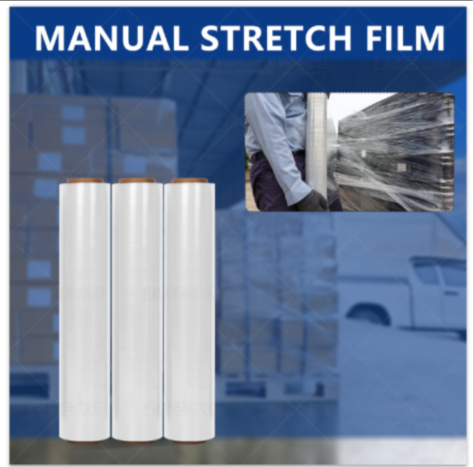compostable trash bags
The Rise of Compostable Trash Bags A Sustainable Solution for Waste Management
In recent years, environmental awareness has surged, prompting individuals and organizations alike to seek sustainable alternatives to traditional products. Among these solutions, compostable trash bags have gained significant popularity. These bags represent a leap forward in waste management, contributing to reducing plastic pollution and promoting a more sustainable lifestyle.
What are Compostable Trash Bags?
Compostable trash bags are designed to break down into natural components when exposed to composting conditions, unlike conventional plastic bags that can take hundreds of years to decompose. Made from plant-based materials such as cornstarch, these bags are engineered to biodegrade efficiently in commercial composting facilities, releasing nutrients back into the soil. This biodegradability is a significant advantage in a world overrun by single-use plastics, which pose grave threats to our environment.
The Environmental Impact
The environmental impact of using compostable trash bags is profound. Conventional plastic trash bags contribute to the rising tide of plastic pollution, which affects marine life and ecosystems globally. Wildlife often ingest plastic debris, leading to injury or death, and microplastics continue to infiltrate our food supply. In contrast, compostable bags do not persist in the environment. Instead, they return to the earth, contributing to soil health and reducing landfill waste.
By switching to compostable bags, households and businesses can take tangible steps towards sustainability. When compostable bags are disposed of in the correct environment, they break down into carbon dioxide, water, and biomass, enriching the compost instead of contributing to pollution.
How to Use Compostable Trash Bags
Despite their benefits, the effectiveness of compostable trash bags hinges on proper usage and disposal. To maximize their environmental benefits, users must adhere to specific guidelines
compostable trash bags

1. Choose Certified Products Look for bags certified by organizations such as the Biodegradable Products Institute (BPI) or the European Conformity (EN 13432) to ensure they meet compostability standards.
2. Correct Disposal Compostable bags should ideally be placed in a compost bin or collection service that processes organic waste. Simply tossing them in the regular trash defeats their purpose and can lead to landfill accumulation.
3. Educate Others Share information about the benefits of compostable trash bags with family, friends, and colleagues. Awareness can help promote their usage and encourage a larger community shift towards sustainable practices.
The Challenges Ahead
While compostable trash bags present a promising alternative to traditional plastics, challenges remain. The infrastructure for composting varies widely across regions. Not all areas have access to composting facilities, making it difficult for consumers to dispose of these bags correctly. Additionally, some compostable bags do not decompose as intended in home composting scenarios due to insufficient heat and aeration.
It is crucial to address these challenges through proper education, improved waste management systems, and advocacy for municipal composting programs. As more communities adopt comprehensive composting initiatives, the demand for compostable products will likely increase.
Conclusion
Compostable trash bags embody a step towards a more sustainable future, offering a viable alternative to traditional plastic bags. With their ability to break down naturally and enrich the soil, they represent a promising solution to mitigate the environmental crisis precipitated by plastic pollution. As individuals, communities, and organizations recognize the importance of sustainable practices, compostable bags can play a pivotal role in our journey towards a cleaner, greener planet. Transitioning to these bags not only reduces ecological harm but also sets the stage for a more responsible approach to waste management that can inspire future generations. Embracing compostable trash bags is a simple yet impactful choice that can lead to profound change on both local and global scales.
-
Stretch Film Solutions: A Comprehensive GuideNewsJun.03,2025
-
Stretch and Shrink Packaging SolutionsNewsJun.03,2025
-
Revolutionizing Packaging with Modern Wrapping SolutionsNewsJun.03,2025
-
Innovative Solutions for Silage and Window TintingNewsJun.03,2025
-
Efficient Packing with Stretch Wrap SolutionsNewsJun.03,2025
-
Effective Packaging with Stretch Wrap SolutionsNewsJun.03,2025
-
Have the freedom of customizing your custom mailers any way you want! Our dedicated packaging support will help deliver you the mailing experience you need to elevate your shipping experience to the next level! Start making a strong impression on your customers and stand out from your competitors! -
LIYA uses high quality raw materials which directly purchased from large enterprises domestic and overseas such as PetroChina, Sinopec, Sabic, Equate, ExxonMobil, Dow Chemical, Total, and Borouge, ensuring the price advantage and quality of the raw materials. -
LIYA uses high quality raw materials which directly purchased from large enterprises domestic and overseas such as PetroChina, Sinopec, Sabic, Equate, ExxonMobil, Dow Chemical, Total, and Borouge, ensuring the price advantage and quality of the raw materials.





